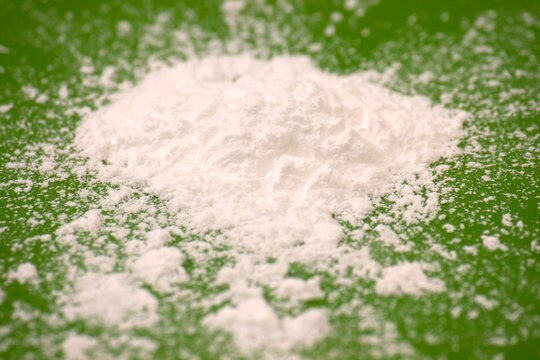推荐产品
形狀
liquid
環保替代產品特色
Design for Energy Efficiency
Learn more about the Principles of Green Chemistry.
sustainability
Greener Alternative Product
黏度
20-60 Pa.s
環保替代類別
儲存溫度
2-8°C
相关类别
一般說明
We are committed to bringing you Greener Alternative Products, which adhere to one or more of The 12 Principles of Greener Chemistry. This product belongs to Enabling category of greener alternatives thus aligns with "Design for energy efficency". These inks are ideal elements for 3D printed energy storage devices. Click here for more information.
應用
This product can be used in material extrusion 3D printing technique.
This research grade (not for human use) Hydroxyapatite or Hyper elastic Bone 3D-printing ink can be used for printing using a direct extrusion (pneumatic or mechanical) 3D-printer into multi-layered, three-dimensional objects at room temperature. This ink should only be used in a well-ventilated environment. The extruded material rapidly solidifies and allows creation of complex, user-designed forms. Despite being mostly hydroxyapatite, the printed solid material is flexible (may even have limited elastic properties). The solids loading of the as-dried material is 85 vol.% hydroxyapatite, 15 vol.% PLGA. This Hyper elastic Bone ink can be utilized to create three-dimensional structures on their own, or co-3D-printed with other 3D-printing inks to create multi-material structures. The ink may also be mixed with other 3D-printing inks to compound them prior to utilization. Due to the mechanical flexibility of the material after drying, complex 2D and 3D forms can be created. This ink may also be utilized in non-3D-printing applications such as coating (dip-coating or direct painting), thread fabrication, or casting into molds.
Our Hyper elastic Bone 3D-printing ink is comprised of micron sized hydroxyapatite suspended in a mixture of organic solvents containing a dissolved, high molecular weight elastomeric, biocompatible polyester (polylactic-co-glycolic acid;PLGA). Prior to further use, to remove residual solvents after 3D-printing (or other application such as coating, direct painting etc) the composite material should be washed in 70% ethanol and then by water. The 3D-printed hydroxyapatite can be used as a flexible, bioactive, biocompatible ceramic composite or it can also be sintered (1500 °C recommended) in a non-oxidative atmosphere to yield Hyper elastic Bone parts. As sintered, Hyper elastic Bone is highly chemically and thermally stable, and can be used for a wide variety of high temperature applications. It also has numerous hard biological tissue (teeth and bone) applications, and can serve in it as as-printed, washed form as flexible ceramic composite cell scaffold, or in its sintered form, as a rigid ceramic scaffold/implant. In its 3D-printed, flexible form, Hyper elastic Bone has been shown to be highly osteoconductive, and osteogenic, capable of differentiation adult human stem cells into osteoblast-like cells.
Our Hyper elastic Bone 3D-printing ink is comprised of micron sized hydroxyapatite suspended in a mixture of organic solvents containing a dissolved, high molecular weight elastomeric, biocompatible polyester (polylactic-co-glycolic acid;PLGA). Prior to further use, to remove residual solvents after 3D-printing (or other application such as coating, direct painting etc) the composite material should be washed in 70% ethanol and then by water. The 3D-printed hydroxyapatite can be used as a flexible, bioactive, biocompatible ceramic composite or it can also be sintered (1500 °C recommended) in a non-oxidative atmosphere to yield Hyper elastic Bone parts. As sintered, Hyper elastic Bone is highly chemically and thermally stable, and can be used for a wide variety of high temperature applications. It also has numerous hard biological tissue (teeth and bone) applications, and can serve in it as as-printed, washed form as flexible ceramic composite cell scaffold, or in its sintered form, as a rigid ceramic scaffold/implant. In its 3D-printed, flexible form, Hyper elastic Bone has been shown to be highly osteoconductive, and osteogenic, capable of differentiation adult human stem cells into osteoblast-like cells.
注意
Prior to use mix until the ink becomes homogeneous
訊號詞
Danger
危險分類
Aquatic Chronic 3 - Carc. 2 - Eye Irrit. 2 - Repr. 1B - Skin Irrit. 2 - STOT SE 3
標靶器官
Central nervous system
儲存類別代碼
6.1C - Combustible acute toxic Cat.3 / toxic compounds or compounds which causing chronic effects
水污染物質分類(WGK)
WGK 3
閃點(°F)
152.6 °F
閃點(°C)
67 °C
商品
Bioinks selection guide for 3D bioprinting of cells for tissues engineering applications.
我们的科学家团队拥有各种研究领域经验,包括生命科学、材料科学、化学合成、色谱、分析及许多其他领域.
联系技术服务部门







